Voters See More Partisanship Coming in D.C.
Congressional Democrats already say they will oppose everything that President Trump attempts, but most voters think the Republican-Democrat divide is going to get even worse.

Congressional Democrats already say they will oppose everything that President Trump attempts, but most voters think the Republican-Democrat divide is going to get even worse.

As far as voters are concerned, neither side in Washington, D.C. is much interested in bipartisanship, but Republicans in Congress are the most partisan.
Only 21% of Likely U.S. Voters think Republicans are acting on a bipartisan basis these days, according to a new Rasmussen Reports national telephone survey. Sixty-one percent (61%) believe they are acting like partisan Republicans. (To see survey question wording, click here.)
(Want a free daily e-mail update? If it's in the news, it's in our polls). Rasmussen Reports updates are also available on Twitter or Facebook.
The national survey of 1,000 Likely Voters was conducted on October 14-15, 2013 by Rasmussen Reports. The margin of sampling error is +/- 3 percentage points with a 95% level of confidence. Field work for all Rasmussen Reports surveys is conducted by Pulse Opinion Research, LLC. See methodology.
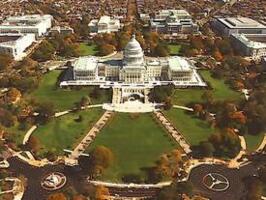
Voters now consider Democrats in Congress more bipartisan than they have in several years and congressional Republicans as less so. However, most think both parties continue to behave in a partisan manner.
A new Rasmussen Reports national telephone survey finds that 31% of Likely U.S. Voters now believe congressional Democrats are acting on a bipartisan basis. By contrast, only 22% think the same of Republicans in Congress.
Similarly, while 61% feel congressional Republicans are acting like partisan Republicans, just 53% believe that to be true of Democrats in Congress. Roughly 16% are undecided when it comes to both parties. (To see survey question wording, click here.)
Given the holiday week, there will be no Rasmussen Challenge this week. The contest will resume on Tuesday, November 27.
The survey of 1,000 Likely Voters was conducted on November 16-17, 2012 by Rasmussen Reports. The margin of sampling error is +/- 3 percentage points with a 95% level of confidence. Field work for all Rasmussen Reports surveys is conducted by Pulse Opinion Research, LLC. See methodology.
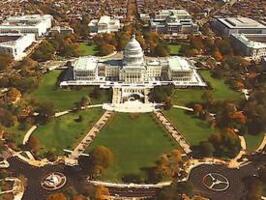
Most voters still think the next president is likely to be a Republican, but belief that it’s very likely has changed little for months.
A new Rasmussen Reports national telephone survey finds that 60% of Likely U.S. Voters believe that the next president will be a Republican. Twenty-five percent (25%) considerate it unlikely that President Obama will be succeeded by a Republican. Sixteen percent (16%) aren’t sure. (To see survey question wording, click here.)
Sign up for The Rasmussen Reader, now just $24.95 for a 12-month subscription. Offer good through October 1, 2012.
The survey of 1,000 Likely Voters was conducted on August 29-30, 2012 by Rasmussen Reports. The margin of sampling error is +/- 3 percentage points with a 95% level of confidence. Field work for all Rasmussen Reports surveys is conducted by Pulse Opinion Research, LLC. See methodology.
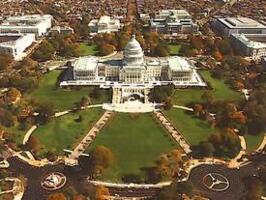
Just over half of voters now expect politics in the nation’s capital to become more partisan, the lowest finding in well over a year.
A new Rasmussen Reports national telephone survey finds that 54% of Likely U.S. Voters expect more partisanship in Washington, D.C., over the next year. That’s down from 61% last month and the lowest finding since January 2011.
Nineteen percent (19%) expect politics in the capital to be more cooperative over the next year, the highest finding since March 2011. Twenty-seven percent (27%), however, are not sure what to expect. (To see survey question wording, click here.)
The survey of 1,000 Likely Voters was conducted on July 15-16, 2012 by Rasmussen Reports. The margin of sampling error is +/- 3 percentage points with a 95% level of confidence. Field work for all Rasmussen Reports surveys is conducted by Pulse Opinion Research, LLC. See methodology.

Though slightly more voters believe President Obama is governing on a bipartisan basis, a majority remains convinced that the next president will be from the Republican Party.
A new Rasmussen Reports national telephone survey finds that 60% of Likely Voters say it’s at least somewhat likely that the next president will be a Republican, including 34% who see this scenario as Very Likely. Twenty-five percent (25%) say it’s not likely the next president will be from the GOP, but that includes only six percent (6%) who believe it is Not At All Likely. Another 15% are undecided. (To see survey question wording, click here.)
The survey of 1,000 Likely Voters was conducted on June 5-6, 2012 by Rasmussen Reports. The margin of sampling error is +/- 3 percentage points with a 95% level of confidence. Field work for all Rasmussen Reports surveys is conducted by Pulse Opinion Research, LLC. See methodology.

Most voters nationwide continue to believe that politics in the nation’s capital will grow more partisan during the next year, but the number that feels that way ties the lowest measured in over a year. Voters also view congressional Republicans as acting more bipartisan than they have in years.
The latest Rasmussen Reports national telephone survey of Likely Voters shows that 58% believe politics in Washington will become more partisan over the next year. Seventeen percent (17%) believe D.C. politics will become more cooperative, and 25% more are not sure. (To see survey question wording, click here.)
This national survey of 1,000 U.S. Likely Voters was conducted on May 6-7, 2012 by Rasmussen Reports. The margin of sampling error is +/- 3 percentage points with a 95% level of confidence. Field work for all Rasmussen Reports surveys is conducted by Pulse Opinion Research, LLC. See methodology.
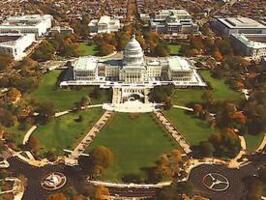
Most voters nationwide continue to believe that politics in the nation’s capital will grow more partisan during the next year, but the number that feels that way ties the lowest measured in over a year. Voters also view congressional Republicans as acting more bipartisan than they have in years.
The latest Rasmussen Reports national telephone survey of Likely Voters shows that 58% believe politics in Washington will become more partisan over the next year. Seventeen percent (17%) believe D.C. politics will become more cooperative, and 25% more are not sure. (To see survey question wording, click here.)
This national survey of 1,000 U.S. Likely Voters was conducted on May 6-7, 2012 by Rasmussen Reports. The margin of sampling error is +/- 3 percentage points with a 95% level of confidence. Field work for all Rasmussen Reports surveys is conducted by Pulse Opinion Research, LLC. See methodology.
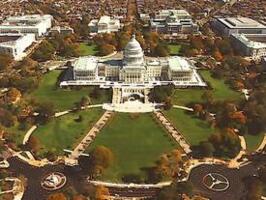
Since just months after his inauguration, voters have consistently felt more strongly that President Obama is governing like a partisan Democrat than in a bipartisan manner.
Now, 53% feel that way, the highest finding since early December 2010. A new Rasmussen Reports telephone survey finds that 32% of Likely U.S. Voters disagree and think he is governing on a bipartisan basis. The latter figure is unchanged from last month which marked the lowest finding in a year. Fourteen percent (14%) are undecided. (To see survey question wording, click here.)
This national survey of 1,000 U.S. Likely Voters was conducted on April 2-3, 2012 by Rasmussen Reports. The margin of sampling error is +/- 3 percentage points with a 95% level of confidence. Field work for all Rasmussen Reports surveys is conducted by Pulse Opinion Research, LLC. See methodology.

Voters are less convinced that President Obama will be succeeded by a Republican.
A new Rasmussen Reports national telephone survey finds that 57% of Likely U.S. Voters still think it it at least somewhat likely that the next president after Obama will be a Republican, including 34% who say it is Very Likely. But the overall finding is down from 66% in early February and the first time it's fallen out of the 60s since December 2009. That belief ran as high as 71% in December 2010.
Just 28% say a Republican is unlikely to follow Obama, but that includes only five percent (5%) who feel it's Not At All Likely. Still, the overall level of skepticism has been that high only one other time - last July - since January 2010. It’s important to note that the question does not specify whether the “next” president will be elected in 2012 or 2016. (To see survey question wording, click here.)
This national survey of 1,000 U.S. Likely Voters was conducted on March 1-2, 2012 by Rasmussen Reports. The margin of sampling error is +/- 3 percentage points with a 95% level of confidence. Field work for all Rasmussen Reports surveys is conducted by Pulse Opinion Research, LLC. See methodology.

More voters think President Obama is governing in a partisan fashion than have felt that way in over a year of regular surveying. Voters are more confident, too, that the next president is likely to be a Republican than at any time in Obama's presidency to date.
A new Rasmussen Reports national telephone survey finds that just 33% of Likely U.S. Voters now think the president is governing in a bipartisan fashion. Fifty-two percent (52%) say he is acting like a partisan Democrat, up four points from November and the highest finding since early December 2010. Sixteen percent (16%) are undecided. (To see survey question wording, click here.)
(Want a free daily e-mail update? If it's in the news, it's in our polls). Rasmussen Reports updates are also available on Twitter or Facebook.
This national survey of 1,000 U.S. Likely Voters was conducted on January 31-February 1, 2011 by Rasmussen Reports. The margin of sampling error is +/- 3 percentage points with a 95% level of confidence. Field work for all Rasmussen Reports surveys is conducted by Pulse Opinion Research, LLC. See methodology.

Most voters continue to believe that politics in the nation’s capital will grow even more partisan, although the number is down slightly from earlier in the year.
The latest Rasmussen Reports national telephone survey of Likely U.S. Voters shows that 58% believe politics in Washington, D.C. will grow more partisan over the next year.

Nearly two-out-of-three voters continue to expect increased partisanship in Washington, DC and to think both parties are to blame.

Most voters continue to lack confidence in members of Congress reaching across the political aisle, but they feel Democrats are doing a better job at bipartisanship than Republicans are.

While voters feel stronger than they have in a year that politics in Washington will grow more partisan in the near future, they say Democrats in Congress are behaving more bipartisan than Republicans are.

Voters now see congressional Republicans as slightly more partisan than their Democratic counterparts and are more pessimistic about the overall level of partisanship in Washington, D.C. than they have been in nearly a year.

As Democrats and Republicans continue to fight over how much to cut federal spending, most voters expect politics inside the Beltway to become even more partisan in the months to come.

President Obama has received a bounce in support following the killing of Osama bin Laden, and now the gap in voter sentiments over whether he’s doing a good job reaching across the congressional aisle is at its narrowest point in two years of monthly tracking. But voters feel no change in the behavior of either party in Congress.

As President Barack Obama, Senator Harry Reid, and House Speaker John Boehner struggle to prevent partisan politics from forcing a partial shutdown of the federal government, 60% of voters nationwide expect the partisan bickering to get even worse over the coming year.

The number of voters who believe politics inside the beltway will become more partisan over the next year has reached its highest level in nearly six months.